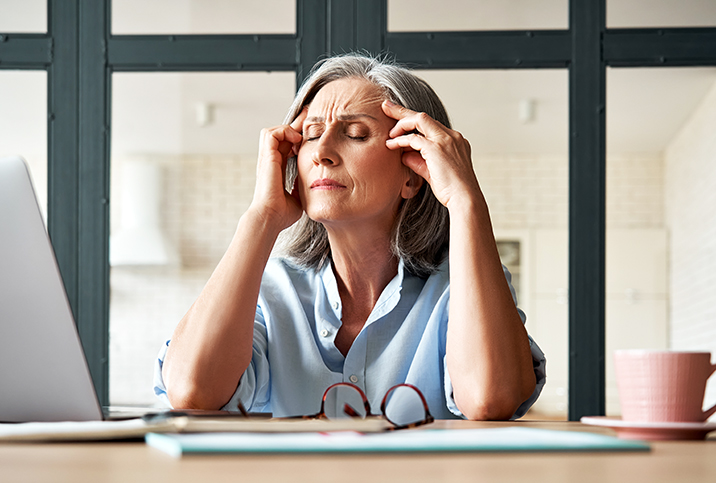What Women Should Know About Sex and Menopause

Many women dread hitting menopause because they worry their sexual activity will decrease. But is that true? And if so, what can they do about it?
Turns out, the situation is a little more complicated than that. Yes, your sex drive may go down for a number of reasons. But you can still have good sex, if you want to, after menopause. You just might need to go about it a little differently.
Sex might become painful
Approximately 45 percent of women experience issues in the urinary tract and genital areas as a result of decreased estrogen caused by menopause. Vaginal dryness and thinning of the vaginal tissue are well-known issues postmenopause, and ones women dread. Unsurprisingly, this can lead to women avoiding sexual intercourse or even intimacy due to it being uncomfortable or painful.
There are things you can do to help. Lubricants can replace the natural moisture that used to occur down there when you became aroused. There are lots of different kinds of lubes, so don't stop if the first one you try isn't doing it for you. Some women prefer to try vaginal rejuvenation or topical estrogen rather than having to apply lube "in the moment." And while hormone replacement therapy, or HRT, is associated with risks for some people, more than 6 million American women use some form of hormone therapy. Assess your personal health history and lifestyle with your doctor, and you might find that HRT can help with painful sex and improve other areas of your life postmenopause, too.
You might not be in the mood
As people—men and women—age, it can take longer for blood to reach and fill the genitals, and so quickies may no longer be on the menu. And aside from the physiological effects of menopause, such as altered hormones and slower arousal, a number of other things can be going on in your body. Hot flashes at night can lead to poor sleep and exhaustion, meaning you might just not be in the mood. Changes can happen to your mental health, too, from brain fog to the "blues" to more serious concerns, including anxiety and depression.
Some women find combating the other symptoms of menopause helps them stay interested in sexual activity. This could be dealt with directly by talking to your doctor about medications or treatments, or indirectly through maintaining your overall health. Staying fit, eating healthy and reducing stress can all help women with their physical and mental health, and they may have benefits when it comes to the bedroom, too.
Try something new
Hopefully, older also means wiser, and prioritizing communication with your partner can open up options to try something different in the bedroom. The sex you had when you were younger might not be the sex you have at this stage of life—and that's OK. Another option is to take sex off the table for a period, and instead focus on emotional intimacy and cuddling. Eliminating the pressure altogether and then finding out what feels good sexually, whether with a partner or alone, can allow you to come up with a new type of sex life that may be just as enjoyable as the one you had premenopause.
There are many issues women face as they pass through menopause and come out the other side. Between medications and procedures, keeping on top of stress and mental health, and communicating with your partner (and yourself) about what sexual experiences are enjoyable, there is no reason you can't have just as good a sex life after menopause as you had before.


















